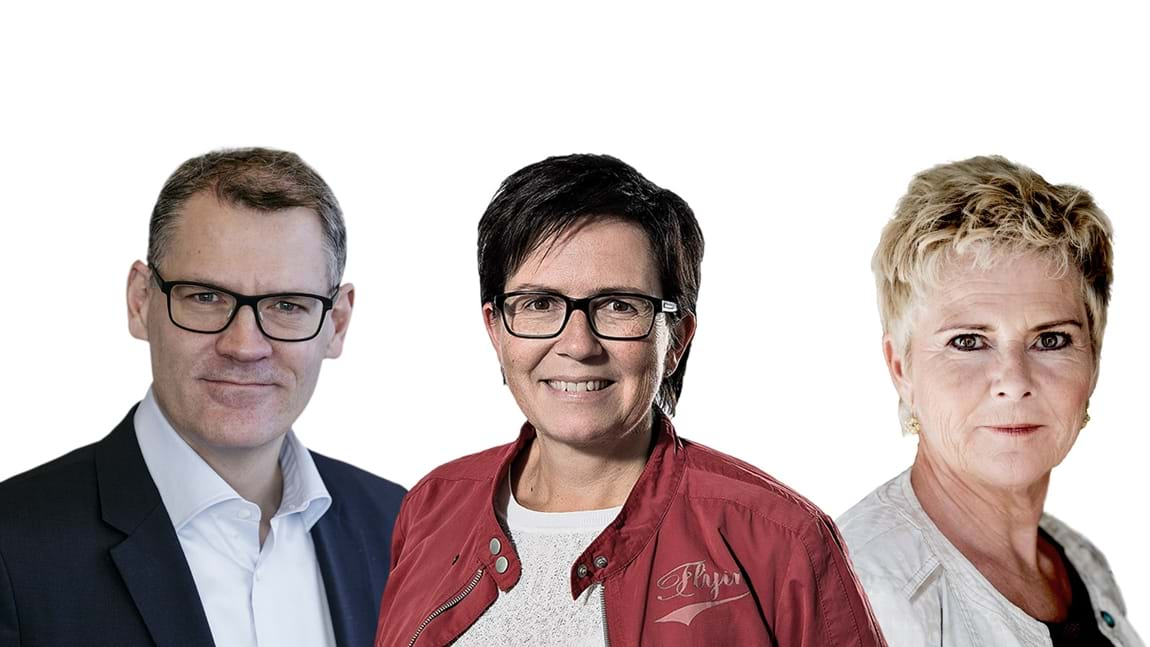The Danish model at work for development
Together, the LO/FTF Council, the United Federation of Danish Workers and the Confederation of Danish Industry will draw upon the success of the Danish Model to achieve the UN’s sustainable development goals abroad.
By Lizette Risgaard, President of the LO/FTF Council, Tina Christensen, Vice-President of the United Federation of Danish Workers and Thomas Bustrup, COO/Deputy Director-General of the Confederation of Danish Industry.
Denmark’s 2017 humanitarian strategy sets the stage for greater inclusion of the private sector, emphasising labour and business organisations as relevant partners. The goal is that public development assistance increasingly be used to mobilise knowledge, networks, competencies and private financing. In addition, the broad political compromise regarding Denmark’s development cooperation places greater focus on sustainable growth and employment.
To quote from the strategy, the government, in partnership with Danish labour market organisations will ‘promote more well-functioning labour markets in developing countries based on workers’ rights and social dialogue. This is decisive to ensure the necessary private investments, for job creation and for developing the local business sector’.
See also: Danish expertise to change working life for the world’s poorest
One hundred years of experience
The LO/FTF Council, DI and 3F have risen to the challenge and created a unique partnership. With more than one hundred years of experience from the well-organised Danish labour market, we can make a difference together. The Ministry of Foreign Affairs has recognised the perspectives of our collaboration and selected ours as one of seventeen strategic partnerships to undertake a prioritised part of Denmark’s development efforts in coming years.
This was made official at a conference at Industriens Hus on 20 November, where our partners in developing countries shared accounts testifying to how valuable inspiration from the Danish Model is for developing their own labour markets and reaching the SDGs.
We are firmly rooted in a Danish tradition of dialogue, mutual respect, will to compromise and reaching shared solutions. We are adversaries who work together professionally.
Naturally, our experiences and traditions cannot simply be exported and directly transplanted to other countries and cultures. Yet the fundamental conditions for the Danish bargaining model are universal, and we therefore permit ourselves to believe that we may have a positive influence on other countries and systems.
We know the value of common responsibility in the Danish labour market, and together we can help promote better social dialogue, workers’ rights and framework agreements for businesses in a number of the world’s poorer countries. Our close relations with sister organisations on either side of the labour market make it possible to demonstrate how a joint initiative can create results for the benefit of both parties. That is what makes our partnership so unique in relation to other countries and compared to organisations that are not themselves actors in the labour market.
See also: Waiting time for NemID keeps international employees locked out of Denmark
Hope for millions of people
Our experience tells us that we as a trio can support poorer countries in the development of better functioning labour markets with decent jobs, better framework conditions for businesses and organisations and mutual respect. Such developments will safeguard against poverty, child labour and conflict and create sustainable businesses and hope for millions of young people in developing countries.
Examples of such initiatives could be improving conditions for good, labour market oriented vocational educations, for instance, which Denmark supports in South Africa, or generating much-needed social dialogue in countries such as Myanmar. We will also work together to increase the availability of educations and decent jobs for the many migrants and refugees in the Middle East.
Sadly, a number of nations are characterised by corruption, bureaucracy and long processing times, poor working conditions, a wide-meshed social safety net and poverty. In that regard, it must be noted that social dialogue also involves tripartite agreements in which social partners and the state demonstrate a will to cooperate and enter binding agreements.
Thereby our efforts – albeit targeted at labour market conditions – will support democratic forces in these countries.
What could be more important than ensuring decent jobs for each individual – or the business community contributing to sustainable social development? It is positive that the government’s strategies for development cooperation and foreign policy call attention to the value of both growth and job creation. We urge that even greater focus be brought to bear on these areas, for instance by elaborating national strategies with analyses of the impact of labour market development on development activities.
See also: Global guide to sustainable business
A minefield of risks
Our collaboration will also support Danish businesses in developing and growth countries. Whether it be manufacturing, provision of services or marketing and sales activities, it is vital that Danish companies also contribute to positive and responsible development.
Our joint initiative will support Danish firms as role models for other international and national enterprises.
The partnership between DI, 3F and the LO/FTF Council contributes to the country’s long-term humanitarian strategy. Building capacity takes time, and along the way the initiative will also face a minefield of risks.
In spite of this, we will gladly take the lead in Denmark’s efforts to achieve SDG 8. We do so because we believe we have experience and expertise that will prove crucial in the work towards realising this goal.
The editorial has also been published in Politiken.
See also: Danish liquorice genius takes on Finland

